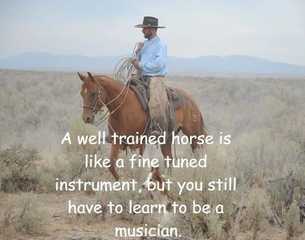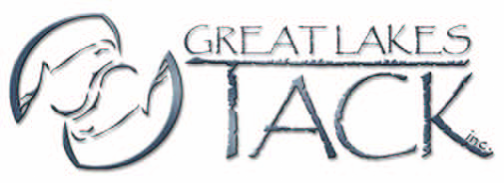 Anyone who has ridden a horse learns that there is a language that the horse and rider must share in order to communicate. In a beginner or casual rider it is a simple language, consisting of the rider's heels, hands and voice. Simple cues are learned such as "whoa" and pulling back on the reins means stop and a kick or cluck means go. As riders advance, so does the communication between horse and rider. At least it should. This communication is delicate and often intricate. On the surface most people would not perceive the subtleties. For instance, the difference in a rider's leg position when executing a turn on the forehand v. a turn on the haunches. Or the slight tip of the spine and pelvis of a half halt. In my horses, I try to keep the vocabulary simple. We maintain a fairly consistent set of words, clucks and cues that any new person can learn. However, even that comes with slight variations given that people are all slightly different. My voice and body structure, even if very similar to another person, are inherently unique to me. My tongue 'cluck' can sound vastly different from another person's; therefore, we start to introduce dialects to our equine partners. When I execute a canter cue, although it is through squeezing my outside heel into the horse just behind the girth and either the word "canter" or this along with a long kissing sound, will undoubtedly 'feel' and 'sound' different to the horse when executed by someone different - albeit similar. Consider the fact the physiologically speaking no one has the exact same build and muscle makeup as I do. This alone could place the rider's heel in a vastly different position when asking with the leg cue alone. When introducing a new rider, the individual and then combination of cues becomes not only new for the rider, but also the horse. Therefore, both are learning this new language and dialect. Only when the pair has success do they begin to understand each other. After all, it is not like either the horse or the rider can ask Google to translate. It is no wonder so many people who buy a horse feel like the horse is misbehaving or like they got taken somehow when the horse behaved perfectly at the sellers place, but after a few rides suddenly stops performing. When in reality the horse and rider are speaking different languages. Too many people don't take the time to understand what language their new partner knows and expect him/her to understand their language and dialect without any sort of translation! It takes time to learn and understand a new language and sometimes even a different accent. Consider also that if you learned a language when you were younger, but never used that language regularly, how much of it would you retain? Riders will unwittingly retrain their horses and wonder why the horse won't do what they are asking? In reality, if we assume the horse knows a cue for the request, it is likely the rider is asking in a different language than what he speaks. A rider should not punish a horse for not speaking their language, no more than a parent would punish a child who reaches for a burner and does not understand what "hot" means! So we must ask ourselves, "How do I learn to communicate with my horse in his language first?" It is only when we understand the basics of the horse's language that we can then teach the horse to translate that into ours. Nelly Cooper has a wonderful blog and book about this topic and many top trainers provide blogs, books and YouTube videos which can help riders improve their ability to communicate with their horses. Another good expert to watch is Warwick Schiller
1 Comment
|
AuthorWe are passionate horse people with a strong desire to create a fun atmosphere for our customers. Visit our How to Save Blog for more great articles Archives
September 2018
Categories |
Pickups can be arranged at: Sunny Ridge Stables - 889 19 Mile Rd., Cedar Springs, MI 49319
Please contact us for appointments or store hours. Text preferred.
616-215-0915
ALL RIGHTS RESERVED
Please contact us for appointments or store hours. Text preferred.
616-215-0915
ALL RIGHTS RESERVED
|
Policies and Official Information
Contact Us
Consignment Forms Size Charts Measurements Shipping Information International Help Financing Options Payment Options Returns & Exchanges Order information |
About Great Lakes Tack
Our Story
100% Guarantee Visit our App: HorseTraxx Frequent Buyer Program Sponsorships Privacy & Security Terms Of Use |
Helpful Information
_More Ways to Shop
Gift Certificates Retail Store Customer Reviews Wholesale Awards Find a Wish List Site Map Download Order Form |
Our Suppliers and Brands
|
JPC Equestrian
Smith-Worthington |
Copyright 2014 - GREAT LAKES TACK, LLC.
Proudly powered by Weebly

 RSS Feed
RSS Feed